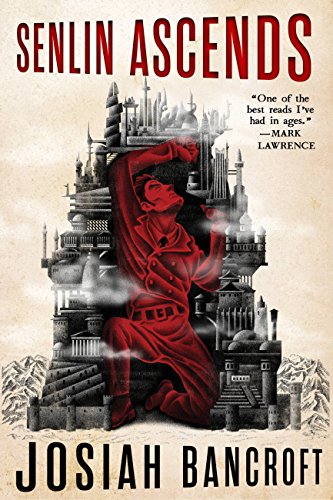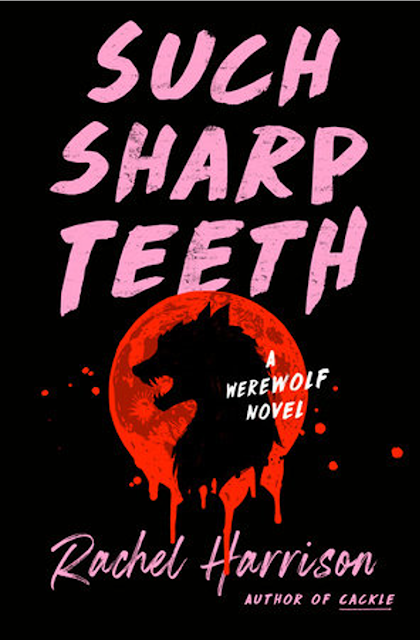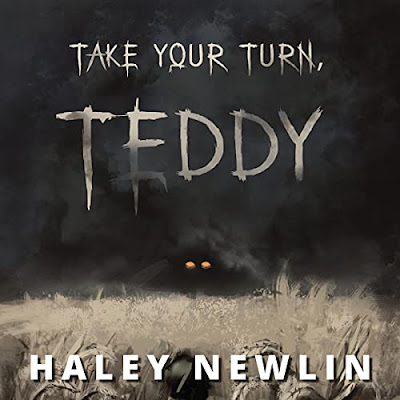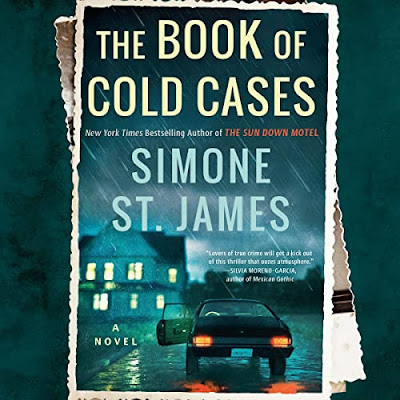Here it is! The “Hotly Anticipated” annual installment of “What Did Rob Enjoy Reading the Most Last Year?!??!” That’s right folks, for the third ye in a row and 14th year overall, here are the books I enjoyed reading most the previous year! As I’ve done every year, here are the previous years I’ve put up a reading year in review,
2023,
2022,
2021,
2018,
2015,
2014,
2013,
2012,
2011,
2010,
2009,
2008,
2007,
2006).
As I've done every year for the past decade and a half, I've contributed to SFFWorld's Favorite of the Year lists:
Fantasy/Horror,
Science Fiction, and
Film/TV. We focus only on 2024/current year releases on our there are a lot of good books out there from previous years I haven’t read.
The trend of Horror being the dominant, or at least highest percentage, of fiction I read in the calendar year continued from the previous two years. Don’t get me wrong, I still read and enjoyed plenty of fantasy! What has continued to drop in quantity/percentage of my reading is Science Fiction. Here are the full statistics of the nearly 96 books I read in 2024. Note that where I indicate "can be considered" takes into account books that can fit into multiple genres. For example, S.A. Barnes's Ghost Station easily fits into both Horror and Science fiction. This explains how the split between genres adds up to more than the totality of the 94 books I read in 2024.
- 43 2024/current year releases
- 35 reviews posted to SFFWorld (including the Halloween Countdown Reviews)
- 52 can be considered Horror
- 40 can be considered Fantasy
- 13 can be considered Science Fiction
- 30 books by authors new to me
- 48 Books by women
- 13 total debut
- 24 audiobooks
- 3 Non-Fiction
So, without further adieu, below are the books I enjoyed reading the most in 2024. It was really tough to rank this group of books because there’s a very high level of quality and enjoyment across them all.
Long Live Evil by Sarah Rees Brennan
(My favorite fantasy novel of 2024)
Long Live Evil was an enormously fun novel. This is a story that plays with tropes and uses them to its advantage in curious, playful, and smart ways. Rae is a person I couldn’t help root for and rally behind, even when she was being a little bit snarky and obnoxious. In some ways, her being pulled into the narrative and using slang is not unlike John Chrichton using common jokes and pop culture phrases in FarScape, only to have his shipmates shake their heads at him. This trope has the potential to wear thin quickly, but Brennan plays it with a very even hand. …and that’s how she plays this novel/story overall. It embraces the genre, turns it on its head, and outcomes something that is that wonderful balance of familiar and new spin.
Of all the portal fantasies I’ve read, I couldn’t help drawing pleasant comparisons to Stephen R. Donaldson’s landmark Thomas Covenant series. Of course, Rae is a not nearly the embittered jerk Covenant is, but both find themselves thrust into a fantastical world as a remedy for their life-threatening conditions.
Horror Movie by Paul Tremblay
(My Favorite Horror Novel of 2024)
Tremblay’s horror novels truly blur the line between fiction and reality, at least as that line is perceived by the characters in his novels. One survivor of a cursed film production from 1993, known only as The Thin Kid, remains. When “enterprising” filmmakers wish to revisit this cursed production, they enlist the aid of The Thin Kid to bring the script and movie to life. Horror Movie delights in playing with the reader, teasing out what is real, what is imagined, and what just might be supernatural. The standard prose is interspersed with script pages making for a mixed media sort of novel that only adds to the blurred lines of horrific fantasy and reality. Since reading A Headful of Ghosts by Tremblay I’ve considered that novel a Mount Rushmore novel of 21st Century Horror fiction and I think Horror Movie is probably at least as good as that. It is certainly rattling around in my head today just as is Headful.
James and I have crossed virtual paths for the last decade or so. At one point in time he was a member of the SFFWorld forums and was a content contributor for the site and we were part of the SFF “blogosphere” in its heyday around the same time. Wanted to get that out of the way, but that does not affect my judgement of this incredible fantasy novel.
Logan tells the novel in the third person omniscient, primarily from Lukan’s point of view. Towards the end we see events unfold through the eyes and experience of other characters, which was a little bit jarring, but was the best way to tell the story. With Lukan as the protagonist, a lot of the experience of the novel rests on his shoulders, whether or not he is a character the reader can tolerate, empathize with, like, or even simply not hate. While he is a bit of a jerk – a gambling drunk who interrupts people, he isn’t a bad person. He was dealt a rather unfortunate blow that has affected him profoundly. As Lukan’s story unfolds, his good qualities shine through even more strongly. He has a strong sense of justice and not just for himself. He tries to help people when he can. In short, he is a complex character, a very human character.
While the publisher made a comparison to Joe Abercrombie, I’m not sure I fully agree with that. There’s not much about Logan’s novel that says Grimdark to me. Then again, there’s that little bit of genre savvy and snarkiness in the characters in both Scott Lynch and Nicholas Eames’s work that is present here. I’d even say James Logan’s debut has more of the vibe of Tad Williams/Robin Hobb/Raymond Feist classic fantasy of the 1980s/1990s.
As has been custom for these posts, the remaining books will be listed out alphabetical by author because I don’t feel like splitting hairs. Additionally, for the remaining favorites, I’m going beyond books published in 2024 as I hinted at previously.
Nestlings by Nat Cassidy

Cassidy is a writer who has been a “rising star” in the horror genre for the past couple of years, his first two novels (this and Mary have received a great deal of acclaim and he seems to be a popular podcast guest. Nestlings is one of the most unique takes I’ve read on vampires. Set in New York City in a creepy high-rise, the story focuses on new parents looking to move into the new building with their young child. Ana is unable to walk due to the difficult pregnancy and Reid is, to put it mildly, having difficulty being caretaker. Well, what usually happens when a family with their own difficulties moves into a building (or home) that itself has a dark history? Hilarity ensues! Seriously, though, events darken and characters find themselves pushed even farther away from their center of sanity. Cassidy captures desperation quite well and there are some genuinely creepy, inventively icky scenes in this novel. A captivating, haunted tale that will leave you unable to look at some of the alder architecture of New York City (or any large US city, for that matter) quite the same.
It Will Hurt for Only a Moment by Delila S. Dawson
It should come as no surprise at this point in time that if Delilah Dawson publishes a horror novel in a given year, then that book will be a standout for me in that given year. The protagonist here is a woman on the run from an abusive relationship hoping to find refuge in a artist’s community. However, with this community sharing the same expansive property of a 200-year-old abandoned hotel, nothing can go wrong, can it? Of course, it can when a body is dug up, experienced artists are injured creating their art, and some of the artists begin behaving rather eccentrically, even for artist. Dawson’s ability to capture dreadful tension, well-drawn characters, and feminist themes come together masterfully in this haunted tale.
Jonathan Janz has emerged over the last few years as a sure-fire must-read horror writer for me. Children of the Dark was originally published in 2016, but was reissued (and slightly updated/revised) in January 2024 to coincide with the publication of its sequel a couple of months later.
[Children of the Dark] fits comfortably in that very popular sub-genre (?) or storytelling template of horror: kids vs. monsters and is as good a take on that kind of story as I’ve ever read. Will is a 15-year-old high school baseball player in a small-town in Indiana. … The girl he likes is dating his enemy, the biggest jock in the school. As if that weren’t enough, the “Moonlight Killer,” the most notorious serial killer in the country who happens to be from Indiana. But is the Moonlight Killer the one responsible for people being snatched away? Because there are the local legends of “The Children,” humanoid monstrosities that have lived below the surface of the earth. … The sequel picks up shortly after the events of the first novel, with Will Burgess a “guest” at Sunny Woods Rehabilitation Center, after the massacre that occurred in his hometown of Shadeland….Janz continues to make the case that he’s one of the pillars of modern horror fiction. His books have a great balance of character and plot, there’s terrifying monsters and creepy scenes balanced with humor.
My Heart is a Chainsaw (Book 1 of The Indian Lake Trilogy) by Stephen Graham Jones

Stephen Graham Jones is a rock star/superstar of the horror genre, a writer who has seen some more mainstream acceptance while still remaining true to his horror roots and retaining that love within the genre. I tried one of his earlier novels and it didn’t work for me at all. So when my wife read My Heart is a Chainsaw (she doesn’t read nearly the percentage of horror I read) and kept peppering me with questions about the genre and encouraged me to read the novel, I relented. Damn, I’m really glad I did. Jade Daniels is a horror junkie with a troubled, broken personal history. When a killer, what she immediately assumes to be a serial killer, descends into her community of Proofrock, she feels a calling to catch the killer. Proofrock is also home to Camp Blood, the site of a massacre 50 years prior to the novel. Jones in this novel has not just written a love-letter to horror films and slashers in particular, he’s captured something very special that is at times difficult to label other than Superb. I’ve got the second book, Don't Fear the Reaper, on my to-read pile, but my wife doesn’t want me reading it before she does!
(Favorite Horror Novel published prior to 2024)
I won’t say this one caught me unawares because the reason I picked it up is because the good things I read/saw about it. I will say the novel shook me and is maybe the best “cult” horror novel I’ve read up to this point in my life. “Devil’s Creek is a big, meaty book that held me in its horrific embrace from the opening page to the final words. Keisling doles out comforting scenes between some of the characters, as well as extremely horrific scenes both sexual and violent in nature. Not once did any of it feel exploitative, though. Gruesome, certainly. Gratuitous, not at all. Religions/Evil Cults are a fairly common element in horror stories, but Keisling’s novel is all but common. It was a refreshing take on the story trope/element. There are some truly, mouth-wide-open horrific and chilling scenes and elements in the novel.

Malfi is another author (not unlike Jonathan Janz) who has been writing and publishing for at least a decade, but whose work I’ve only recently been acquainted. Malfi is also one of those authors who seem to be a “writer’s writer,” a writer who other writers constantly praise. Oddly, this is one of three horror novels I read in 2024 with the word "Horror" in the title. “Small Town Horror hits on one of the most reliable of narrative starting points – friends reuniting after years apart. In this case, New York lawyer Andrew Larimer receives a call from his old friend Dale Walls urging him to return to their hometown of Kingsport, Maryland. When we first meet Andrew, he is suffering from nightmares and is very concerned for his pregnant wife and unborn child – he fears something very bad will happen to them. When his wife Rebecca asks him about it, he deflects. While somewhat dishonest, it is at least understandable – a husband doesn’t want to worry his pregnant wife any more than necessary or complicate the pregnancy in any fashion. One of the most effective plot twists/revelations I’ve ever read – happened roughly 4/5 through the novel. Not something I saw coming, but one of those logical plot twists that helps to make much of what preceded it make 100% sense.
Dragon Mage by M.L. Spencer and narrated/performed by Ben Farrow

I’ve been seeing a lot of positive buzz about this book for a few years now (originally published in 2021. I finally gave in and used an Audible credit to add the audiobook to my virtual shelf and I am very, very pleased I did so. Spencer’s story is fairly straight-forward and typical for Epic Fantasy, “Aram Raythe is a young boy in a fishing village who is something of an outcast. He has very few friends because most kids his age think he is off, broken, or just not right. Aram has one thing at which he is very good: knots. He knows every knot a fisherman uses, how to tie them, and make them strong. When a few boys decide to bully Aram because he is different, another boy named Markus steps in to help him. It is a bond the two will share for the remainder of their lives… In this milieu, the world is riven in two (i.e. the title of the saga is Rivenworld) – the World Above and the World Below. The World Above is where Aram resides, it is a world bereft of people truly attuned to magic. The only way sorcerers can manipulate magic is by consuming the essence of the Auld, essentially naturally born mages. The World Below is a world where dragons and magic are commonplace, where the mages (Auld) can wield magic naturally…One of the major ways that Spencer is able to put her own unique stamp on the tried and true Epic Fantasy / Coming of Age story is what she does with Aram, he is neurodiverse on the Autism spectrum. The way she writes his internal dialogue, how characters react to him, his obsession with knots…are very much coded as Autism. My wife is a first-grade teacher and has studied extensively about Autism and special needs and has shared with me some of that knowledge. I’m not trying to proclaim expertise, but some knowledge.”
I enjoyed the audiobook so much, I decided to buy the physical/hardcover version of the book and it is a lovely book.

I’ve been thoroughly enjoying this Dark, Epic Fantasy trilogy and was very excited to dive into the finale. “The third and final volume in the trilogy, The Trials of Empire continues the story seamlessly from The Tyranny of Faith, with Konrad Vonvalt drastically powered down. He’s still got the Emperor’s Voice at his disposal, but from a stature standpoint, he is not what one would call “in good standing” with the empire. Despite this, he, Helena, the knight von Osterlen, and Sir Radomir are determined to put an end to Claver’s uprising. The problem is Claver’s influence has become very far ranging, to the point that Vonvalt is doubting his former allies, especially with Vonvalt being a wanted man. … Epic Fantasy often flirts with horrific elements, after all, many of these tales demons or demonic entities are major threats or the actual Big Bad/Final Boss. As a reader who thoroughly enjoys horror, I really like when horror elements start to seep into Epic Fantasy and Swan deftly weaves those horrific and terrifying elements into his story. There are some eldritch powers at play in the magical powers in the world of this novel and Swan’s pace at easing those elements into the novel were superb.
I couldn’t help but include both novels by M.L. Wang I read this year, they were both so impactful and impressive.
Much like Spencer’s Dragon Mage, The Sword of Kaigen has been something of an “independent darling” of the Epic Fantasy space the past few years. First, a little bit about the world-building while the novel is Eastern Asian influenced, it most definitely is not traditional. This world has telecommunications, airplanes, high-rise building, and modern technology. … Very high marks for the world building because Want makes her world feel like a character. But a character we only know a little bit about. The world in this novel is fascinating on so many levels, I haven’t read too many fantasy novels where spells sit alongside airplanes and telecommunication infrastructure. Well, sure, quite a few Urban Fantasy novels, but not very many Epic Fantasy novels. Want wraps all these seemingly disparate elements together masterfully. … The Sword of Kaigen is a very powerful Epic Fantasy novel, a familial saga, a novel of war. Epic in its magic, epic in its scope even though it focuses primarily on one nation of a world, and most definitely epic in scope of the family. Not just one of the best “self/independently” published novels I’ve ever read, but a top single-volume fantasy novel I’ve ever read.
Slightly switching gears, this novel is what might be considered Dark Academia. “Set in an industrialized land called Tiran, the novel captures a very momentous time in this land’s history. The ascension of Sciona Freynan as the first woman to achieve the title of High Mage. …The magic is unique. The cover of the US Edition from Del Rey depicts what appears to be something like an old fashioned typewriter with a strange disc where the paper might be standing. What this device actually is amounts to a magical coding device, it is how spells are written and created. It is a fascinating take on magic and an interesting scientific approach to magic. … Wang packs so much into this single-volume fantasy novel. It is a complete, powerful, and intensely thought-provoking story.
Honorable Mentions
Clown in a Cornfield 3: Cult of Frendo by Adam Cesare – A thoroughly enjoyable young adult horror trilogy, Cesare’s story came to a close in a wonderful way. A smart story that expertly tows the line between appealing to readers who don’t often read horror and die hard horror fans alike.
C.J. Cooke had two novels publish in the last two years and I enjoyed both of them!
A Haunting in the Arctic was an eerie tale of lost memory with some Lovecraftian overtones and
The Book of Witching is very much about witches and the haunted history of the “witch trials” in Scotland.
David Dalglish – I read and enjoyed
Soulkeeper, the first installment of his
Keepers trilogy from a couple of years ago and thought he brought
The Vagrant trilogy to a close quite nicely with
The Slain Divine.
The Pine Deep Trilogy by Jonathan Maberry – The first installment, Ghost Road Blues was Maberry’s first novel, it recieved the Bram Stoker Award for Best First Novel in 2006. The series is set in a rural Pennsylvania town with a murderous past. That murderous past comes back because it wasn’t human. This is an enormously fun trilogy and proof that Maberry has been a great storyteller straight out of the gate.
Dungeon Crawler Carl is another “independent darling” of the fantasy scene, but in 2024, Ace books began reissuing the series. What if the world is turned into a giant dungeon for the entertainment of aliens as a reality TV show? A crazy premise that works remarkably well with snark and some insightful things going on in the story.
So Thirsty is Rachel Harrison’s modern, feminist take on vampires and what a freakin’ delight it was! It felt like a wonderful pairing of Kathryn Bigelow’s vampire masterpiece
Near Dark and the iconic
Thelma & Louise. A traveling band of vampire rogues, two women who rely on their friendship through challenging times (an extreme oversimplification, I know). I’m left wanting more, though. Of the novels I’ve read from her, this one feels the most like there’s more story to tell with the characters.
This Cursed House by Del Sandeen - The most impressive horror debut I read in 2024. Sandeen has crafted an extremely impressive debut with
This Cursed House. She touches on colorism, which is a form of racism that doesn’t seem to get quite the “attention” ofr “feature” in fiction/horror fiction.
Another series finale I read this past year was Chuck Wendig’s Vultures, which wonderfully concluded his Miriam Black series. This set of books is a raw, awesome, crime-horror story.
Last, but certainly not least, The Navigator’s Children (The Last King of Osten Ard #4) by Tad Williams – I’m still kind of processing this one, as it brings to a close a story and characters I’ve had part of my reading experience for the better part of 30 years! The conclusion was very emotional and well-earned.
Another year of great reading and maybe one of the best over the past couple of decades. Several of my top reads earned at least a 9 out of 10 for my personal rating system.
































